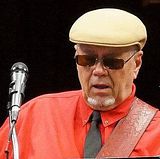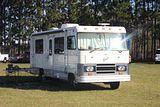Go to...  | Start A New Topic  | Search  | Notify  | Tools  | Reply To This Topic  |  |
On the second trip I've taken with my 1981 Barth, three times while on a six hour drive, a noise came from the engine doghouse, that sounded like a jet engine. Each time, thinking that my transmission was slipping, I let my foot off the gas pedal and the sound subsided. After reapplying the gas the Barth proceeded without any problems. The engine temp gauge was just above half each time this happened. This is a GM crate 454 that was installed approximately 4,000 miles ago. Like I said earlier, my first thought would be that the bands are slipping on the trans, however, the Barth ran fine for six hours making this noise at about two hour intervals. I remember a discussion about fan clutches roaring. Could this noise be from a faulty fan clutch? Any and all comments would be appreciated as I just spent approximately $1,800 on front airbags, tires, alignment and rear disc brake caliper and am not looking forward to bringing the Barth to the trans shop if I don't have to. Barry | |||
|
"Could this noise be from a faulty fan clutch?" Not necessarily faulty. My '86 would do exactly what you're describing when the temp called for more fan - not coolant temp, but temp at the fan itself. Check the fan and see that the fins aren't clogged. It may be a good sign: that your fan clutch is working. ------------------ "You are what you drive" - Clint Eastwood | ||||
|
"First Year of Inception" Membership Club |
I am lean toward your fan clutch kicking in. Bill or someone can tell you how to check to see if it is working properly. I think some people even replace it with manually operated electric fans. However, I think I recall someone saying that they stink. ------------------   | |||
|
| First Month Member |
Barry, was the temp climbing when the noise started? Was the coach climbing? If so, then the fan clutch is kicking in correctly. To really get a handle on this, you should have a tach and tranny temp gage. A tranny gage is good anyway, trouble or no. A tach will tell you if your tranny is slipping. A tranny temp gage will tell you if your tranny is getting hot and putting heat into the radiator, causing the fan to react. My Barth did that. I said nothing to the trans guy, and he rebuilt it and dropped it off for me to install. He said, "Oh, by the way, did your engine overheat?" I said, yeah, why?, to which he replied, "I found a whatzit was slipping and must have made a lot of heat". Electric fans are good, but are only a supplement to a clutch fan. I love mine, but also love the factory clutch fan. The factory fan should roar for the first minute or so on a cold start up, then settle down and be quiet. It should roar again when you are running hot or working hard. Mine kicks in just before I crest a lot of hills, then settles down again. If you had a regular temp gage, it would kick in at around 215 water temp, but, as Gunner said, it is really reacting to the temp of the air hitting the center of the clutch. When RADIATOR DISCHARGE AIR TEMPERATURE is below (appr)150 degrees F., the fan clutch limits fan speed to 800-1400 RPM. At this RPM, the clutch is disengaged. The clutch engages when the radiator discharge air temp rises above 150 degrees F.(appr)providing maximum fan speed of appr 2,200 RPM. The quick and dirty way to test this is to get your engine warm and shut if off. The fan should spin fairly easily by hand. Cover the radiator with cardboard and start up again. Watch the temp gage and listen for the roar. It should roar at a fairly high temp. Having said all that, putting in a new GM clutch is always a good idea on a used coach. They don't last forever, and will fail late on a hot Sunday afternoon when you have to be back to work on Monday morning and all the parts stores are closed. And, as Gunner said, clean the radiator. | |||
|
| She who must be obeyed and me, Ensign 3rd crass "5+ Years of Active Membership" |
I took Bill’s advice and changed the fan clutch. The four 5/16 national fine bolts that hold the fan onto the mount had seen their day so I picked up some stainless ones. It is of interest that on my coach only three of them had nuts on them. The old clutch used studs, the new clutch needs bolts; at least the one I got did. OK to the point of the post. After I had changed the fan clutch and got ready to do some more work I had a profound revelation, YOU CAN REMOVE THE ENGINE COVER. This is a whole new world, there were a couple of those funny Barth screws you need just the right Phillips head screw driver to pull out going into the floor and eight more that ran randomly in from the front. This has been replaced with those nuts that lock into the wood and some nice hex head number 10 screws to hold things in place. It comes off in a few minutes and is easy to put back. With the cover off the engine is very accessible. Redoing the cover and installing a new clutch is about a days work at my pace. It sure is more fun to do in the driveway rather than out on highway 99 in the summer. Timothy [This message has been edited by timnlana (edited March 29, 2005).] [This message has been edited by timnlana (edited March 29, 2005).] | |||
|
| "First Year of Inception" Membership Club |
I also replaced my fan clutch. They aren't that expensive and anyone that turns wrenches at all can replace one of these things fairly easy. It does roar at first when you start up the engine. I think that it is good insurance to repalce these clutches if it hasn't been done. It is a lot better to do it at home when it is cool. | |||
|
Glassnose Aficionado |
Barry, I freaked the first few times the fan clutch kicked in, and told my wrench I had to have something quieter. Nope, you want to know it's working, and that thing is working fine. Mine kicks in at just below half, howls for a few minutes, and smooths out fine. It is a tad disconserting until you get used to it, but it's a natural part of a truck this old. [Barry and I have twins] ------------------ Dan & Suzy Z '81 Euro 28 | |||
|
Does a 1973 have a fan clutch? I have never heard mine roar. | ||||
|
| "First Year of Inception" Membership Club |
My 72 has a clutch. It also has a 350 motor. It will kick in when needed. | |||
|
Hey Guys: Thank you for all your input on my fan clutch question. I am sure glad that you could confirm that the noise could be coming from the fan clutch. I was not looking forward to a trip to the tranny shop. Bill, per your suggestion I plan to install a temp gauge on the trans and also install a tach. I had been considering both of these but now I plan to do it for sure. Can you tell me where to install the sensor on the trans? I have been a stick shift guy most of my life and have not had the opportunity to become familiar with the workings of an automatic. Can I use a mechanical coolant temp gauge, the ones with the thermistor attached to the gauge? Again, thank you all for your responses. Barry | ||||
|
| First Month Member |
Barry, the simplest is to install a B&M drain plug kit http://www.prostreetonline.com/buy/b&m_drain_plug_kit/ in the transmission pan. This will make your transmission fluid changing easier, and will allow you to install a 1/8 pipe plug temp bulb in place of the drain plug in the kit. Any trans temp gage with 1/8 plug threads will work. JC Whitney has one at a pretty fair price. Most mechanical temp gages have too large a temp bulbs and too short a tube. Here is a nice one, but it has 1/2"npt threads on the bulb: http://www.racerpartswholesale.com/stewarn22.htm My own preference is to install the temp bulb in the line from the converter to the cooler as it gives a little more advance of an impending overheat condition, and allows you to back off the throttle, shift down, turn off dash air or whatever. Ummmmmm..........you do have a trans cooler in front of the radiator, don't you? [This message has been edited by bill h (edited April 01, 2005).] | |||
|
"you do have a trans cooler in front of the radiator, don't you?" A caution, Bill: on an '81 the transmission cooler may be integral to the radiator instead of a separate unit in front. If so, there will be trans fluid tubes - one inlet, one return, into the radiator body probably on the passenger side upright. ------------------ "You are what you drive" - Clint Eastwood | ||||
|
| First Month Member |
Yeah, mine came that way. The integral trans cooler in the radiator tank is woefully inadequate. I added a BIG cooler immediately. I cannot understand why Barth did not add trans coolers. Even pickups with the factory tow package have them. I would suggest that all gas motor homes that are driven in hot climates or climb hills have one installed. Short term exposure to high heat levels (or even prolonged exposure to moderate heat) can break down the oil to the point where even very short episodes of overheating will lead to failure. Here is a chart showing the effects of high trans temperatures: http://www.txchange.com/heatchrt.htm If there is any doubt, a trans temp gage will tell for sure. | |||
|
| Powered by Social Strata |
| Please Wait. Your request is being processed... |
|
This website is dedicated to the Barth Custom Coach, their owners and those who admire this American made, quality crafted, motor coach.
We are committed to the history, preservation and restoration of the Barth Custom Coach.
We are committed to the history, preservation and restoration of the Barth Custom Coach.

